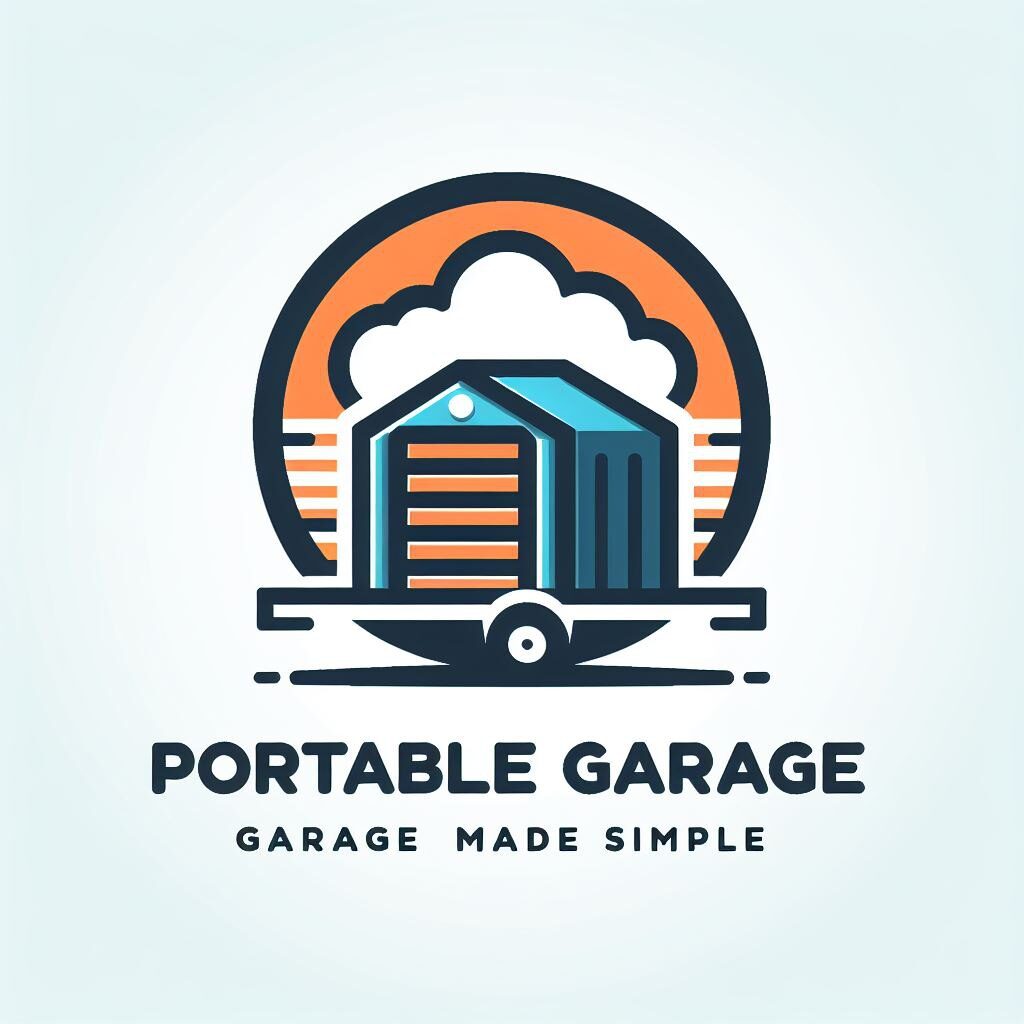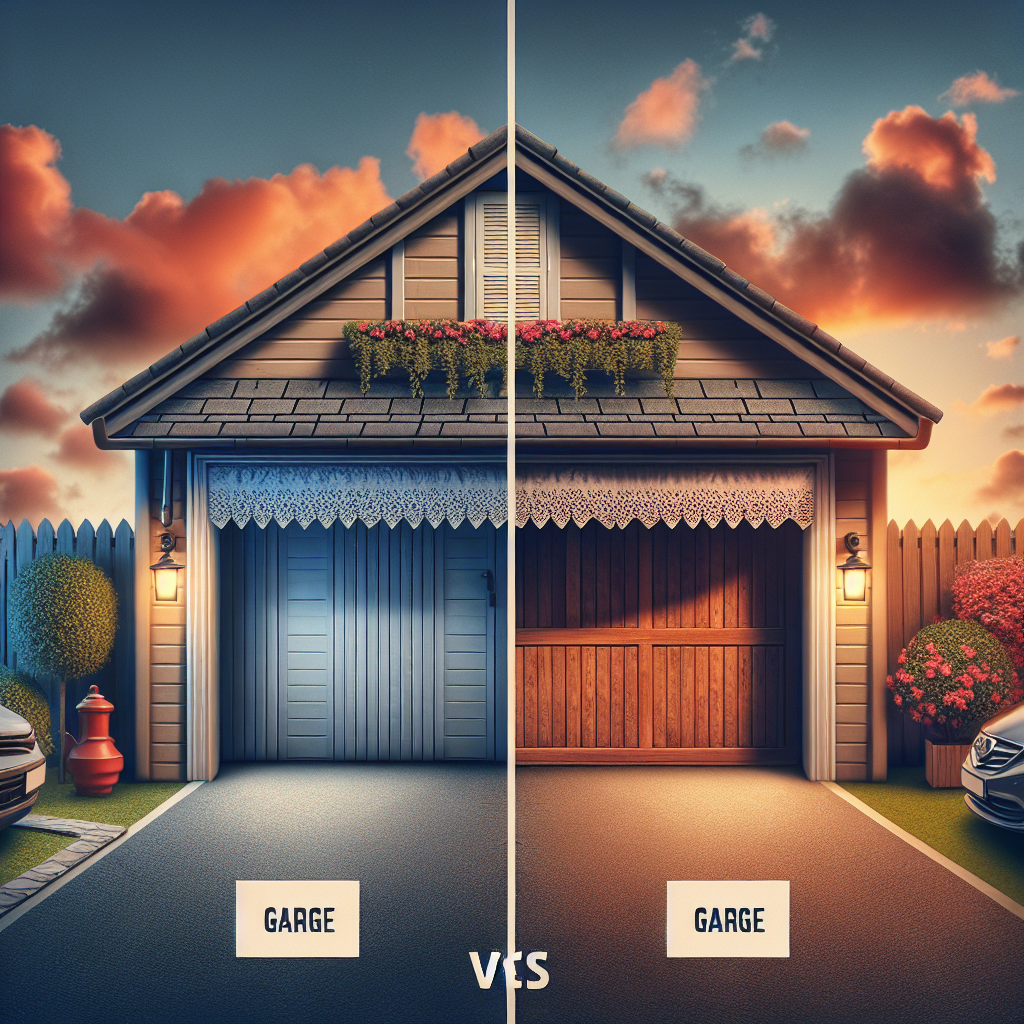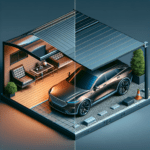So, you’re thinking about adding some extra covered space for your vehicle, but you’re unsure of whether to go with a carport or a garage. Don’t worry, we’ve got you covered! In this article, we’ll be exploring the key differences between carports and garages, answering some frequently asked questions, and giving you all the information you need to make the right decision for your needs. Whether you’re looking for a place to protect your car from the elements or a secure storage space, we’ll help you understand the pros and cons of each option so you can make an informed choice. Get ready to dive into the world of carports and garages, and let’s find your perfect fit!
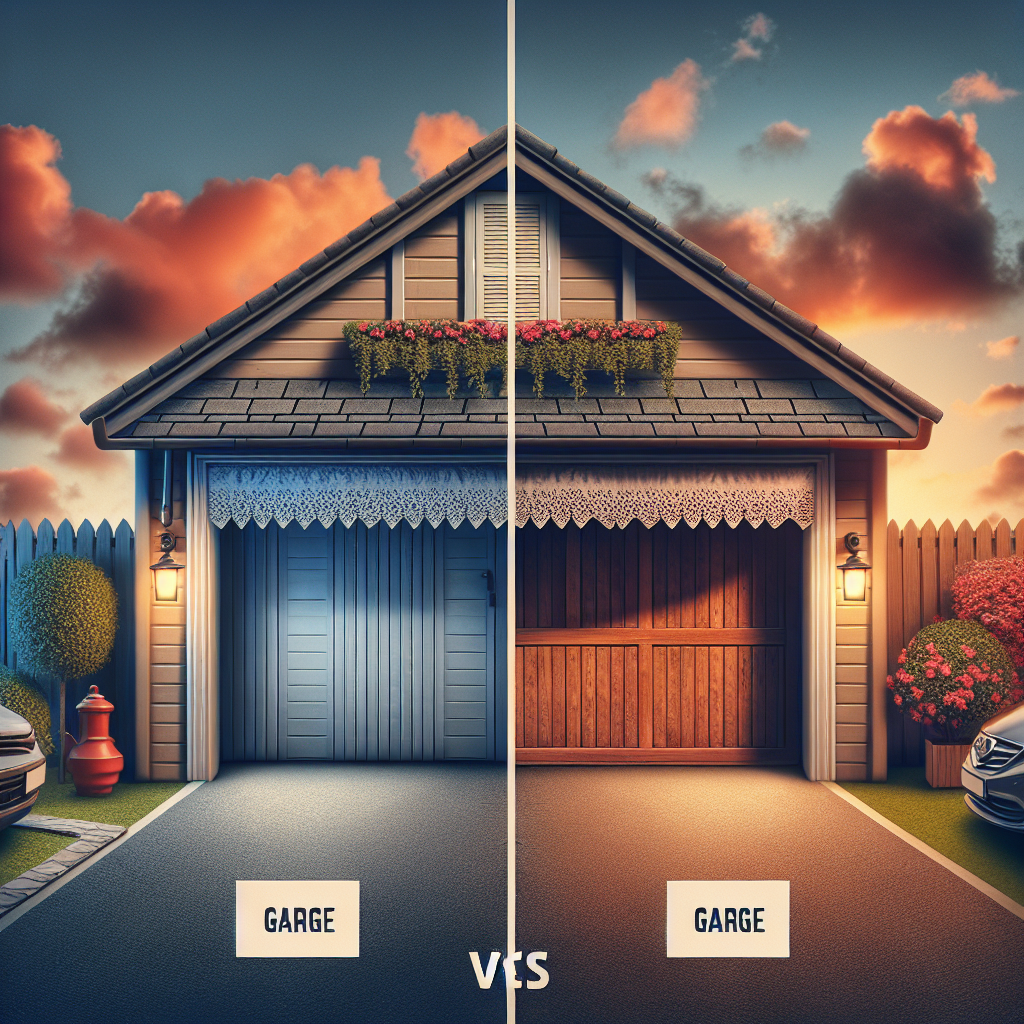
Definition of Carport and Garage
What is a carport?
A carport is an open-sided structure that provides shelter for vehicles. It typically consists of a roof supported by posts or beams, with no walls or doors enclosing the space. Carports are designed to protect vehicles from various weather conditions while allowing for easy access.
What is a garage?
A garage, on the other hand, is an enclosed structure with walls and doors. It provides a secure and fully enclosed space for vehicles, offering protection not only from weather elements but also from theft and vandalism. Garages are typically attached or detached from a house and often include additional storage space.
Structure and Design
Open-sided structure: Carport
Carports are characterized by their open-sided design, which allows for maximum ventilation and ease of access. The absence of walls ensures that vehicles can be easily driven in and out without any obstructions. The open design also allows for natural light to enter, creating a bright and airy space. However, this lack of walls also means that carports offer minimal privacy and security.
Enclosed structure: Garage
Garages, on the other hand, feature a fully enclosed structure with walls and doors. This design provides enhanced security and privacy for both vehicles and any stored belongings. The enclosed space also offers protection against potential theft or damages caused by outside elements. However, the enclosed design may limit ventilation and require artificial lighting in the absence of windows.
Construction Materials
Carport materials
Carports can be constructed using a variety of materials, depending on the desired aesthetic and budget. Common materials include steel, aluminum, wood, and fabric. Steel carports are known for their durability and strength, making them a popular choice. Aluminum carports are lightweight and resistant to rust, while wood carports offer a more natural and aesthetically pleasing option. Fabric carports provide a temporary and portable solution for those seeking flexibility.
Garage materials
Garages are typically built using more sturdy and permanent materials. Common choices for garage construction include wood, concrete, and steel. Wood offers a traditional and customizable option, but may require regular maintenance to prevent decay. Concrete garages provide durability and strength, while steel garages are known for their resistance to pests, fire, and harsh weather conditions.
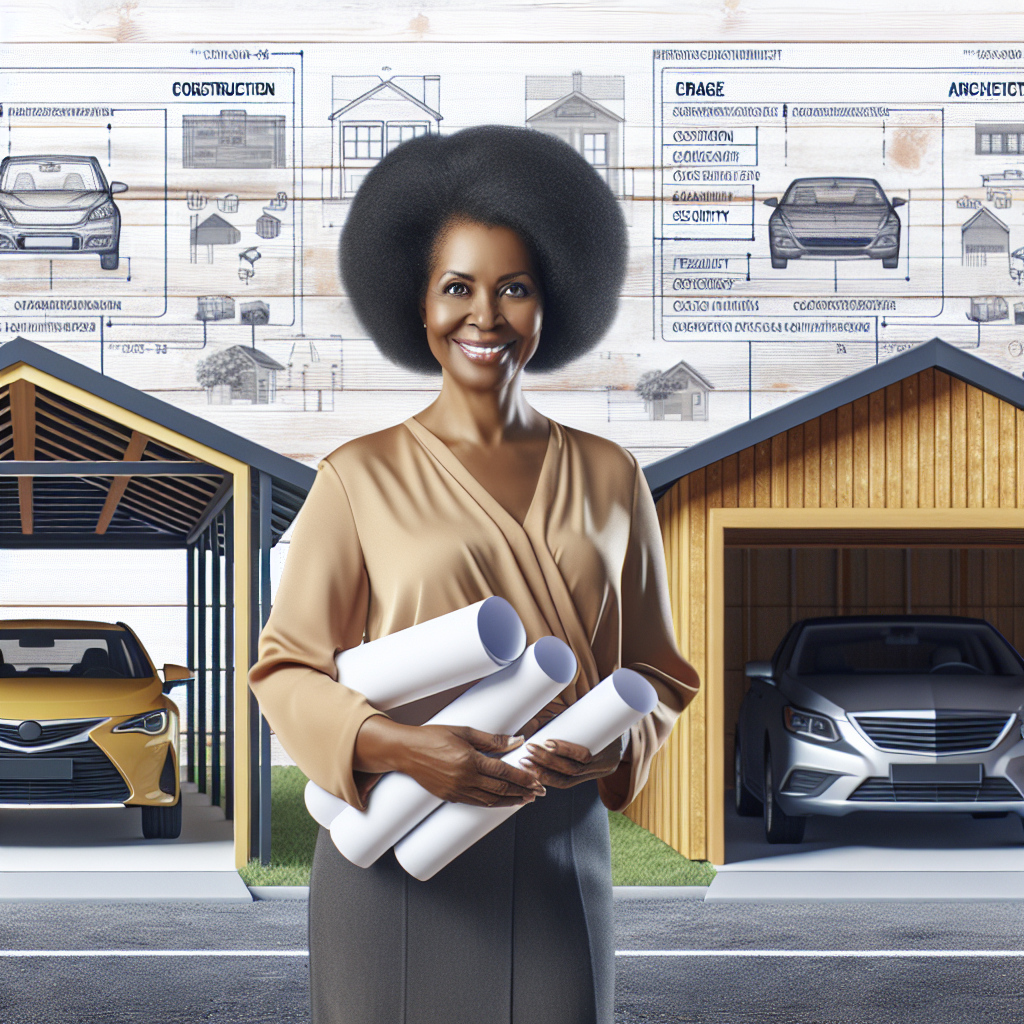
Purpose and Function
Protecting vehicles: Carport and its benefits
A carport serves as a cost-effective solution to protect vehicles from weather elements such as sun, rain, and snow. The open-sided design allows for natural ventilation, preventing condensation and minimizing the risk of rust or damage caused by moisture. Carports also provide shade, protecting vehicles from the harmful effects of prolonged sun exposure, such as paint fading or interior damage. Additionally, carports offer a convenient parking space without the need for navigating narrow garage doors or tight spaces.
Vehicle storage and more: Garage and its benefits
Garages are designed to offer extensive protection for vehicles, as well as additional storage and functional space. The enclosed structure provides maximum security, safeguarding vehicles from theft and vandalism. Garages also offer protection against extreme weather conditions, such as hailstorms or high winds, which can cause significant damage to vehicles. The enclosed space allows for the storage of tools, equipment, and other belongings, keeping them organized, secure, and shielded from the elements.
Cost Considerations
Initial cost: Carport vs. Garage
When considering the initial cost of construction, carports are generally more affordable than garages. Carports require fewer materials and labor, as they lack walls and doors. The cost of a carport can vary depending on factors such as size, materials used, and additional features like lighting or electrical outlets. Garages, on the other hand, require more materials and labor due to their enclosed structure, making them a higher upfront investment.
Maintenance and repair costs
In terms of maintenance and repair costs, carports often have an advantage over garages. The open-sided design of carports makes them easier and less expensive to maintain. Regular cleaning, roof inspections, and occasional repairs may be required, but overall upkeep is generally minimal. Garages, with their enclosed structure, may require more frequent maintenance, such as door and window maintenance, roof repairs, and potential issues with electrical systems.
Installation and Building Regulations
Ease of installation: Carport vs. Garage
Carports are typically easier to install compared to garages. As an open-sided structure, carports often require minimal site preparation and can be assembled relatively quickly. Many carports are sold as pre-fabricated kits, simplifying the installation process even further. Garages, on the other hand, involve more complex construction and may require a foundation, building permits, and the assistance of professional contractors. The timeline for garage construction can be longer, depending on the size and complexity of the project.
Building regulations and permits
Another factor to consider is local building regulations and permits. Carports, due to their open design and smaller footprint, may not always require building permits or inspections. However, it is essential to check with local authorities to ensure compliance with any zoning or building code requirements. Garages, being fully enclosed structures, almost always require permits and inspections to ensure they meet safety and structural standards. It is crucial to consult with local authorities and obtain the necessary permits before starting any garage construction project.
Security and Privacy
Secure parking option: Carport vs. Garage
When it comes to security, garages offer a significant advantage over carports. The enclosed structure of a garage provides a higher level of security against theft and vandalism. Vehicles parked in a garage are hidden from view, reducing the risk of break-ins or opportunistic crimes. Garages also often include door locks and may be equipped with security systems, adding an extra layer of protection. Carports, on the other hand, lack walls and doors, making vehicles more susceptible to theft or damage.
Enhanced privacy: Garage
Garages also provide enhanced privacy compared to carports. The enclosed structure and solid walls of a garage shield vehicles and stored belongings from view, enhancing privacy for homeowners. This is especially beneficial for individuals who prefer to keep their cars or valuable items out of sight. Carports, due to their open-sided design, offer little privacy as vehicles and belongings are easily visible to passersby.
Weather Protection
Limited protection: Carport
Carports provide limited protection against weather elements compared to garages. While carports offer shade and protection against direct sunlight, they do not provide a fully enclosed space. This means that vehicles parked under a carport are still exposed to elements such as rain, snow, and wind. While the roof offers some shielding, it is essential to note that carports only provide partial protection against weather conditions.
Full protection: Garage
Garages, on the other hand, offer full protection against weather conditions. The enclosed structure provides a barrier against rain, snow, hail, and strong winds. Vehicles parked in a garage remain shielded from these elements, minimizing the risk of damage and extending their lifespan. Garages also offer the convenience of not having to remove snow or ice from the vehicle during winter months, saving time and effort.
Additional Uses and Features
Versatility of carports
Carports are known for their versatility, as they can serve various purposes beyond vehicle protection. Due to their open design, carports can be used as outdoor gathering spaces or covered play areas for children. They can also provide shelter for boats, RVs, or trailers. Additionally, carports can be easily customized with features such as lighting, electrical outlets, or even solar panels, turning them into functional spaces for hobbies or work.
Additional features of garages
Garages offer additional features that extend their functionality beyond vehicle storage. Many garages include built-in shelves, cabinets, or workbenches, providing ample storage space for tools, gardening equipment, sports gear, and more. Garages can also be converted into workshops, home gyms, or even living spaces, offering endless possibilities for utilizing the enclosed structure. The added features and versatility of garages make them a desirable asset for homeowners.
Aesthetics and Property Value
Impact on curb appeal
Both carports and garages can have a significant impact on the curb appeal of a property. A well-designed and aesthetically pleasing carport or garage can enhance the overall appearance of a home. Carports can be customized with different roofing materials, colors, and finishes to complement the architectural style of the property. Garages, with their enclosed structure, can be designed to seamlessly blend with the existing house, creating a cohesive and visually appealing exterior.
Influence on property value
Garages often have a more substantial impact on property value compared to carports. The added security, privacy, and functionality of a garage contribute to increasing the overall value of a home. Garages are highly sought after by homebuyers, as they offer enclosed parking and storage space, making them a desirable feature. While carports can provide some value, they may not have the same impact on property value as garages do.
In conclusion, carports and garages differ in their design, construction materials, purpose, cost considerations, installation requirements, security, weather protection, extra features, aesthetics, and the influence they have on property value. Understanding these differences will help you make an informed decision when choosing between a carport and a garage, based on your specific needs and budget. Whether you prioritize cost-effectiveness and versatility with a carport or opt for enhanced security and protection with a garage, both options offer valuable benefits for vehicle owners.
